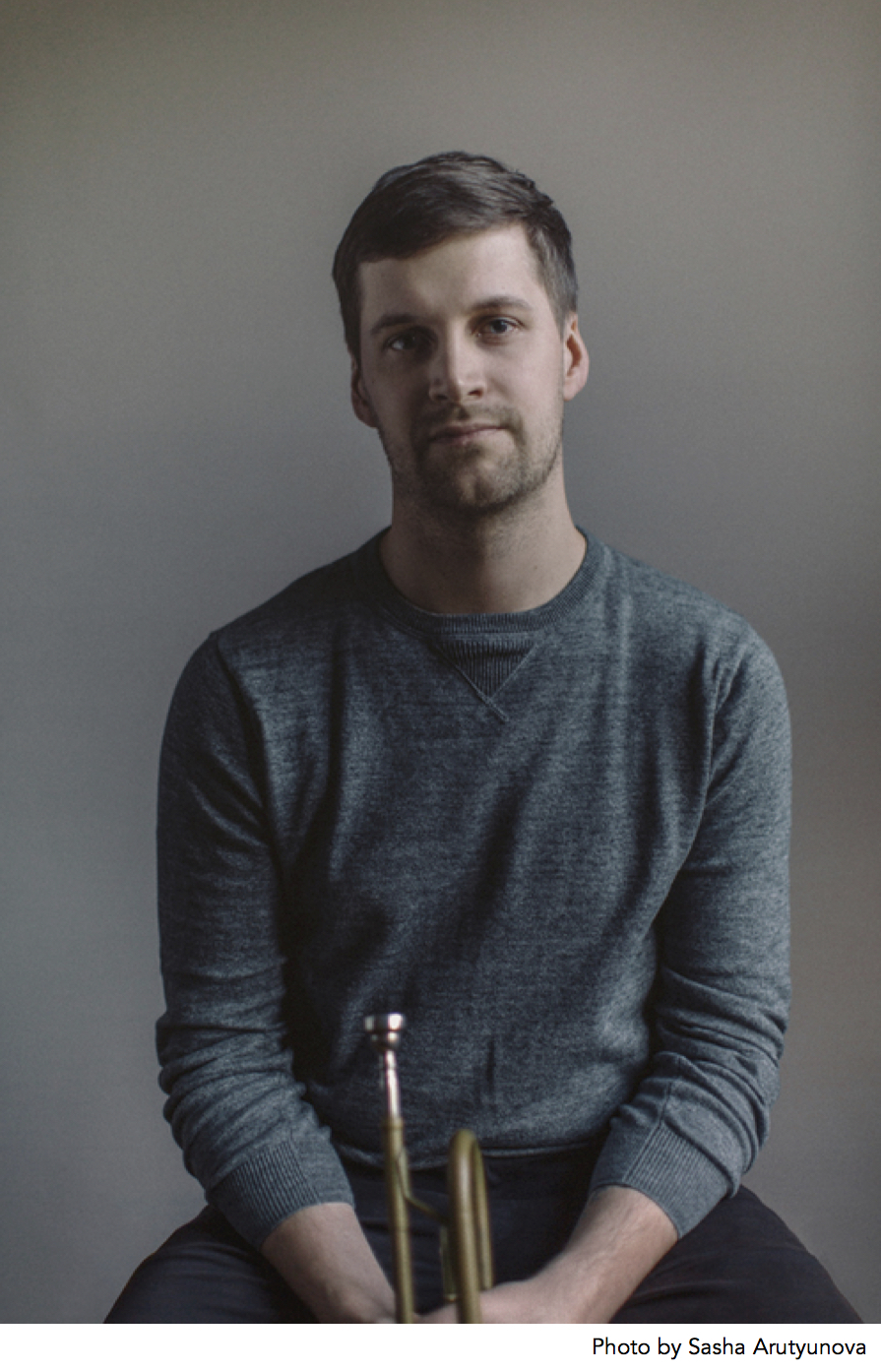John Raymond is a jazz trumpeter, composer, and educator. Since moving to New York City in 2009, John has performed with some of the most well-respected names in jazz. He is also an active guest educator in high schools and universities around the country. His new album, Real Feels, incorporates jazz, folk, and indie-rock influences and releases February 12.
 What do you do everyday?
What do you do everyday?
I conduct a jazz band and teach trumpet lessons to middle and high school students at an international school that is affiliated with the United Nations. I also spend several hours a day practicing my instrument as well as taking care of other business-related things connected to my own projects.
How did you discover your love for jazz?
I started playing in fifth grade and—thanks to some amazing teachers—got to participate in the school jazz band, study with professional musicians around town, and have lots of opportunities to learn more about jazz throughout my elementary and middle school years. That really led me to love it from an early age.
Did you play at your church?
While I grew up in church, I wasn’t really a Christian until I was 16 years old when the Lord used a fellow musician in the Minnesota All State Jazz Band to introduce me to the gospel. Since then, I’ve been a member of various churches, but only recently have I started playing in church on a regular basis.
How has becoming a Christian shaped your work?
The Lord has used jazz to make me into someone who trusts him. Jazz is improvised and messy. When performing, I don’t know exactly where my fellow bandmates or I are going. This spontaneity runs right up against my impulse to control. But God has used jazz to teach me to trust his grace, let go of my grasp, and live moment by moment through the Spirit. And this hasn’t just shaped how I play music; it has also shaped how I parent, how I teach, and more.
Do you think jazz has a unique way of allowing listeners to experience something transcendent?
I named this band Real Feels because it reflects our desire to be as honest, genuine, and personal as we can be when we play. As jazz musicians, we’re constantly creating and responding to each other, which means we’re being vulnerable with each other so we can hear where the music should go next. For me, as a Christian, I’m ultimately listening for where God would have the music go. When the audience listens in this same way—expecting the unexpected—they embrace the potential for the supernatural to happen. That is often the place where God can move.
How would you finish the sentence: “I’m successful in my work if . . .”?
Whether I’m teaching or improvising or being a dad or performing, I’m successful if I’m as out of the way as possible. When I meditate and pray before I go on stage, I’m seeking to die to myself, to remind myself that this isn’t about me or what I want. I just want to be a conduit for the people around me to know and experience the Lord in a powerful way.
To see John and his band live, check out their tour schedule this spring here. To pre-order their album, click here. The below video was performed at a church building in New York City that is 150 years old.
Editors’ note: The weekly TGCvocations column asks practitioners about their jobs and how they integrate their faith and work. Interviews are condensed.
Is there enough evidence for us to believe the Gospels?
 In an age of faith deconstruction and skepticism about the Bible’s authority, it’s common to hear claims that the Gospels are unreliable propaganda. And if the Gospels are shown to be historically unreliable, the whole foundation of Christianity begins to crumble.
In an age of faith deconstruction and skepticism about the Bible’s authority, it’s common to hear claims that the Gospels are unreliable propaganda. And if the Gospels are shown to be historically unreliable, the whole foundation of Christianity begins to crumble.



































